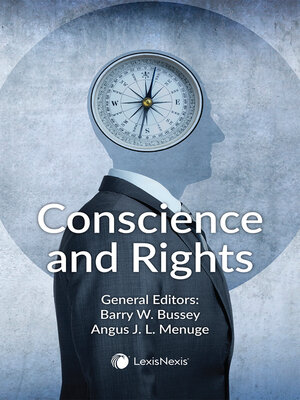
Sign up to save your library
With an OverDrive account, you can save your favorite libraries for at-a-glance information about availability. Find out more about OverDrive accounts.
Find this title in Libby, the library reading app by OverDrive.



Search for a digital library with this title
Title found at these libraries:
| Library Name | Distance |
|---|---|
| Loading... |
Why should the law take claims of conscience seriously?
This is not an easy question to answer because there are many different accounts of what the conscience is, and many different views of the authority of conscience. Is conscience a faculty capable of moral knowledge, or merely a vague term for subjective moral feelings? Do conscience claims deserve public recognition and legal protection, or are they just expressions of private convictions?
One thing seems clear. A free society governed by the rule of law should avoid two extreme views of the conscience. At one extreme lies totalitarianism, in which individual conscience has no weight at all: central government is entitled to make one-size-fits-all laws for the good of the state, and conscientious objection is criminal defection. Yet, at the other extreme, conscience is divinized, treated as the very voice of God, and this may result in an antinomian, chaotic individualism. If anyone can defect from any law to which they conscientiously object, how can there be a society?
This collection was developed from the International Association for Philosophy of Law and Social Philosophy (IVR) World Congress in Bucharest, Romania in 2022. The essays take a fresh look at the nature and authority of conscience, and consider the extent to which the law should recognize claims of conscience.
The Collection of Papers
Conscience and Rights is a collection of papers developed out of the Supreme Court Law Review, Second Series.







